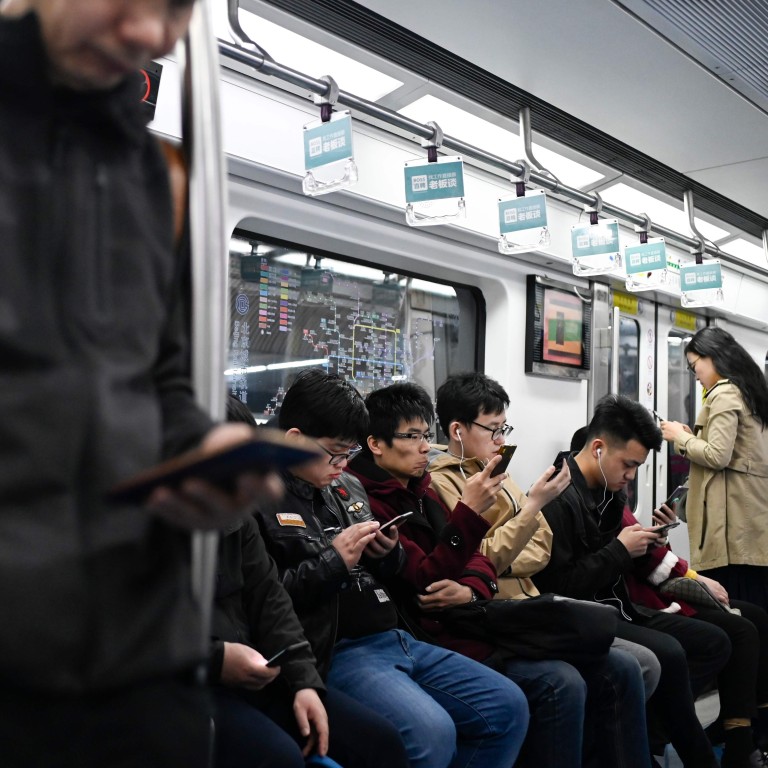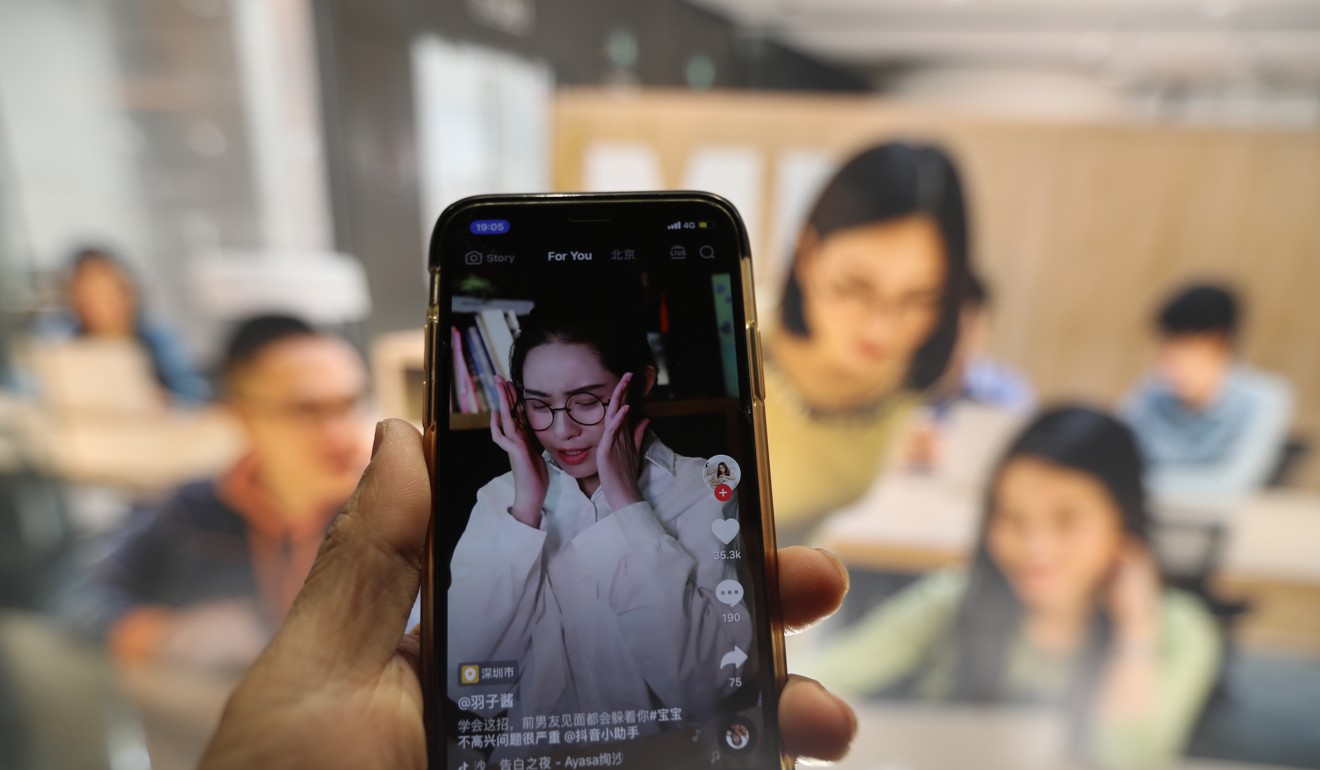
Chinese mobile users now spend over 6 hours every day online – that’s almost 2 full days a week
- As China hits saturation in the growth of its mobile internet population, the time users are spending on their devices continues to climb
- Online mobile engagement is driven by smart devices, digitisation in the offline retail industry and live streaming, according to research firm QuestMobile
Chinese mobile users may be spending almost twice as much time as the average adult in the US online on their devices, research suggests.
From the beginning of 2019 to the end of last November, each user spent an average of 6.2 hours of day – or 1.8 full days a week – online on mobile devices, 11.3 per cent more than the same period last year, according to a report published by research firm QuestMobile on Thursday. The average number of apps they used per month also increased from 21.3 in 2018 to 23.6 in 2019, according to the report.
A separate report by research firm eMarketer in May last year estimated that the average US adult would spend three hours and 43 minutes on mobile devices a day in 2019.
That growth seems to be reaching a saturation point, according to the QuestMobile report: mobile internet user growth fell below 1 per cent for the first time in 2019, registering an anaemic 0.7 per cent increase year-on-year.
Online mobile engagement in the country shows no sign of slowing, however. This is mainly driven by the proliferation of smart devices, the digitisation of the offline retail industry as well as the popularity of live streaming and its integration with social, shopping, music and video platforms, the report said.
How smartphone apps changed the way people live in China
Bricks-and-mortar retail outlets such as Chinese milk tea and coffee chain stores also play an important role in the growth of mobile internet use, according to the report.
Drink chains LuckinCoffee, Heytea and Starbucks, which allow consumers to submit takeaway orders via “mini-programs” on super app WeChat, have all seen their mobile user numbers grow by at least 200 per cent year-on-year in 2019, QuestMobile reported.
Another strong driver of mobile internet growth is live streaming, QuestMobile said. With the world’s largest internet population, China had 433 million live streaming users as of last June, according to CNNIC data.

Combining entertaining content with real-time interactivity, live streaming is now integrated with many platforms, from online shopping platform Taobao, owned by the Post’s parent company Alibaba, to music and streaming apps such as Douyin and Bilibili. These platforms use the feature to enhance user loyalty, foster key opinion leaders and monetise their huge traffic, according to the report.
Consumers elsewhere are also big on mobile, with app analytics firm Sensor Tower finding that worldwide spending on mobile apps across the App Store and Google Play hit US$277 million on Christmas Day last year.
This was 11.3 per cent higher than 2018, thanks to new device sales, first-time mobile users and consumers flush with gift card credit, the Sensor Tower report said.
The largest proportion of this spending, US$210 million or 76 per cent of revenue across both major app stores, was on games. PUBG Mobile, created by Chinese tech giant Tencent’s TiMi studio, led in-game spending with US$8.5 million on Christmas last year, up 431 per cent from the US$1.6 million that players spent in the game on Christmas 2018.

